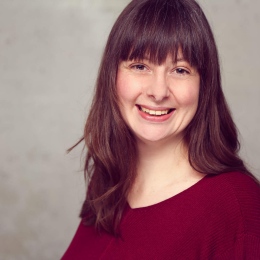What/Who is making our cities smart? Understanding human experience of mobility, transport and urban space
We are happy to present Mareike Glöss, Digital Futures Postdoctoral Fellow. Mareike Glöss main research interest is understanding digital transformations and their diffusion into everyday life. She looks at how novel computing technologies are appropriated, and how this impacts everyday life.
Date and time: 21 January 2021, 12 pm – 1 pm
Speaker: Mareike Glöss
Title:What/Who is making our cities smart? Understanding the human experience of mobility, transport and urban space.
Zoom: https://kth-se.zoom.us/j/67432682790?pwd=dVgzbjRSbUVFT2FOYTByYlZrTU9BUT09
Meeting ID: 674 3268 2790
Password: DF2020
Watch the recorded presentation:
 Abstract: Algorithms have become a crucial part of urban environment. A multitude of services that keep cities working depend on more or less complex algorithms. Many scholarly explorations around algorithms in public and urban space focus on how they can be utilised by planners and policy makers to create a somewhat utopian ‘smart city’.
Abstract: Algorithms have become a crucial part of urban environment. A multitude of services that keep cities working depend on more or less complex algorithms. Many scholarly explorations around algorithms in public and urban space focus on how they can be utilised by planners and policy makers to create a somewhat utopian ‘smart city’.
Bio: Mareike Glöss main research interest is understanding digital transformations and their diffusion into everyday life. She looks at how novel computing technologies are appropriated, and how this impacts everyday life. An important part of her work is translating results to inform the design and development of new technologies.
She is especially interested in public spaces and how people move through them. She has studied various aspects of auto-mobility – on the road with Swedish commuters or as a passenger in Californian cabs and Uber rides.
But there is a big chance that auto-mobility is only going to be a very small part of future mobility (at most). Thus, more recently she started to think about new approaches to mobility away from single modes of transportation. According to Mareike Glöss, we have to start thinking much more about personal journeys and intermodal forms of transport. Closely related to this is her interest in Smart Cities. Those are still treated very much like a future vision, but in reality, cities are already very smart. Just in a much more chaotic form than we imagined. And this chaos is something she would like to untangle.


